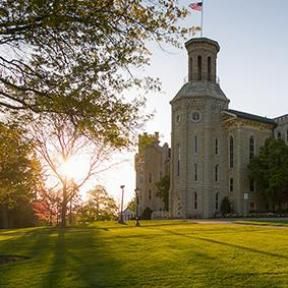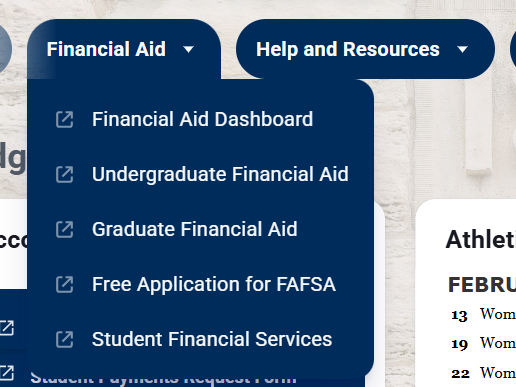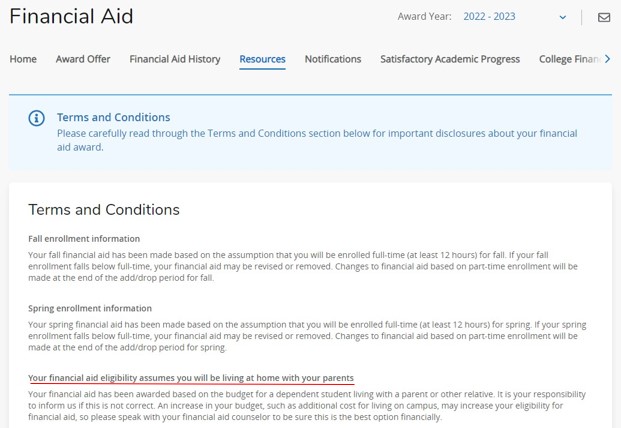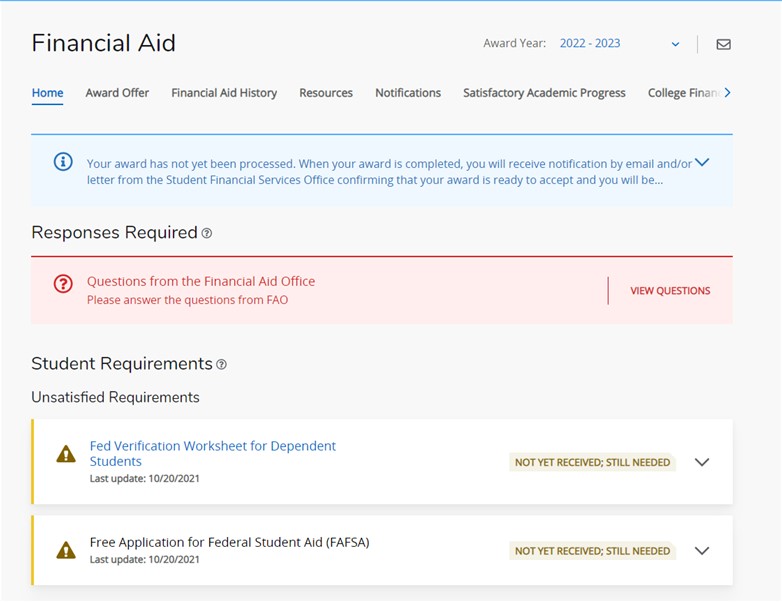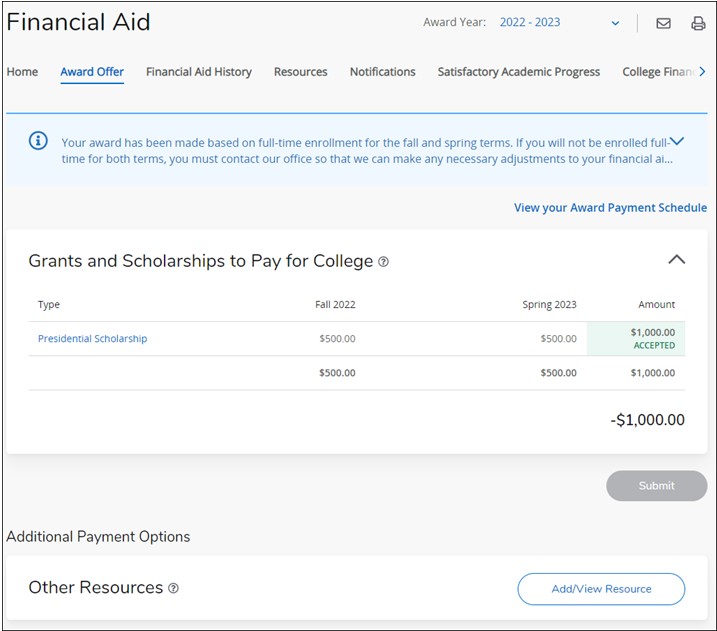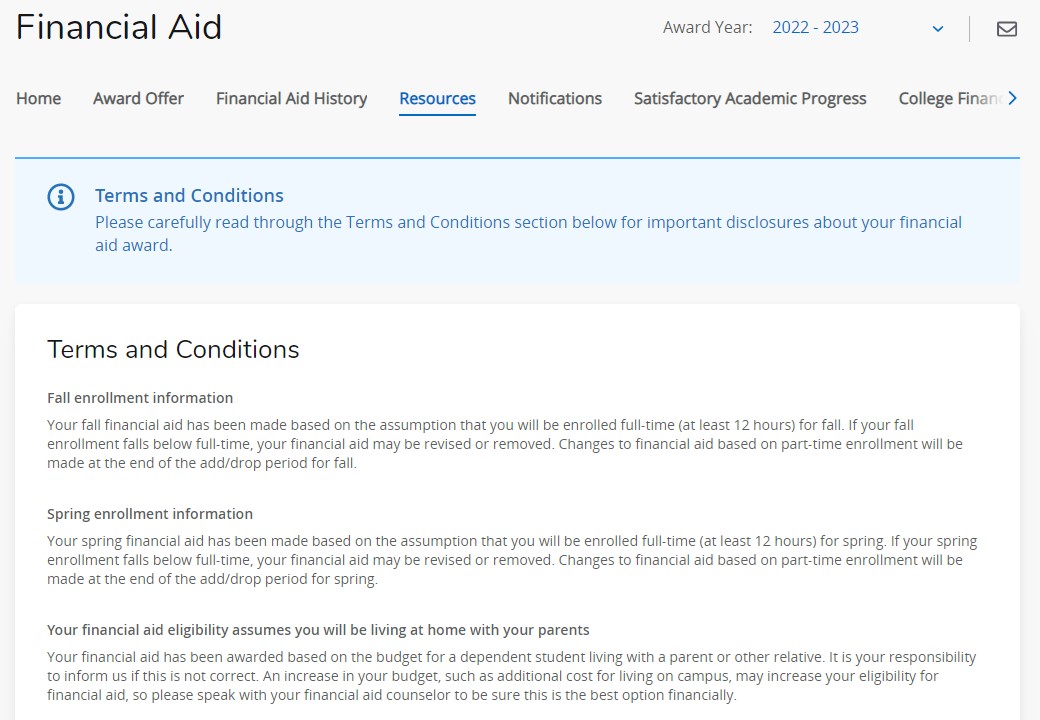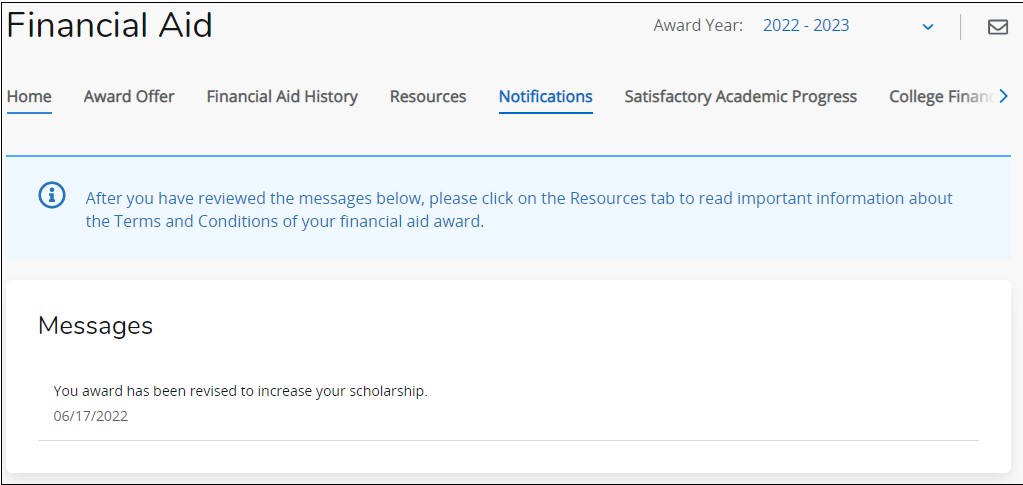To receive Federal Financial Aid and/or Need-Based Institutional Aid you must:
- have a high school diploma or a GED certificate, or pass a test approved by the U.S. Dept. of Education.
- be enrolled or accepted for enrollment in a degree program or eligible certificate program.
- be a U.S. citizen or eligible non-citizen.
- have a valid social security number
- maintain satisfactory progress once in school.
Eligible Non-Citizen:
Generally, if you have a “green card” (in other words, if you are a permanent resident alien) you will be considered an “eligible noncitizen and will be able to apply for federal student aid. Learn about which immigration statuses make you an eligible noncitizen.
You must be one of the following to receive federal financial aid:
- U.S. citizen
- U.S. national (includes natives of American Samoa or Swain's Island)
- U.S. permanent resident who has an I-151, I-551, or I-551C
If you are not in one of the above categories, you must have an Arrival-Departure Record (I-94) from the U.S. Immigration and Naturalization Service (INS) showing one of the following designations in order to be eligible:
- "Refugee"
- "Asylum Granted"
- "Indefinite Parole" and/or "Humanitarian Parole"
- "Cuban-Haitian Entrant, Status Pending"
- "Conditional Entrant" (valid only if issued before April 1, 1980)
If you have only a Notice of Approval to Apply for Permanent Residence (I-171 or I-464), you are NOT eligible for federal student aid.
If you are in the United States on an F1 or F2 student visa only, or a J1 or J2 exchange visitor visa only, you are NOT eligible for federal student aid. Also, persons with G series visas are not eligible.
Citizens of the Federated States of Micronesia, the Republic of the Marshall Islands, and the Republic of Palau are eligible only for Federal Pell Grants, FSEOGs, or Federal Work Study. These applicants should check with Student Financial Services for more information.
Determining Independent Student Status
The following text is taken directly from the Federal Student Aid website.
For the 2025-2026 Award Year, a student is automatically determined to be independent for federal student aid purposes if he or she meets one or more of the following criteria:
- The student was born before January 1, 2002.
- The student is married or separated (but not divorced) as of the date of the application.
- At the beginning of the 2025-2026 school year, the student will be enrolled in a master’s or doctoral degree program (such as MA, MBA, MD, JD, PhD, EdD, or graduate certificate, etc.).
- The student is currently serving on active duty in the U.S. Armed Forces or is a National Guard or Reserves enlistee called into federal active duty for purposes other than training.
- The student is a veteran of the U.S. Armed Forces.
- The student has or will have one or more children who receive more than half of their support from him or her between July 1, 2025, and June 30, 2026.
- The student has dependent(s) (other than children or spouse) who live with him or her and who receive more than half of their support from the student, now and through June 30, 2026.
- At any time since the student turned age 13, both of the student’s parents were deceased, or the student was in foster care or was a dependent or ward of the court.
- As determined by a court in the student’s state of legal residence, the student is now, or was upon reaching the age of majority, an emancipated minor (that is, released from control by his or her parent or guardian).
- As determined by a court in the student’s state of legal residence, the student is now, or was upon reaching the age of majority, in legal guardianship.
- On or after July 1, 2024, the student was determined by a high school or school district homeless liaison to be an unaccompanied youth who was homeless or was self-supporting and at risk of being homeless.
- On or after July 1, 2023, the student was determined by the director of an emergency shelter or transitional housing program funded by the U.S. Department of Housing and Urban Development to be an unaccompanied youth who was homeless or was self-supporting and at risk of being homeless.
- At any time on or after July 1, 2024, the student was determined by a director of a runaway or homeless youth basic center or transitional living program to be an unaccompanied youth who was homeless or was self-supporting and at risk of being homeless.
- The student is determined by the college financial aid administrator to be an unaccompanied youth who is homeless or is self-supporting and at risk of being homeless.
If any of the above situations apply to you, please contact the Student Financial Services (SFS) Office for more information.
If you have questions about your eligibility, please contact Student Financial Services.
 Financial aid helps students and their families pay for college. It can come in the form of scholarships, need-based aid, loans, or some combination of all three, and it can cover a range of educational expenses such as tuition and fees, room and board, books and supplies, and transportation. The Student Financial Services team at Wheaton is happy to walk with you through the financial aid process. Contact us at
Financial aid helps students and their families pay for college. It can come in the form of scholarships, need-based aid, loans, or some combination of all three, and it can cover a range of educational expenses such as tuition and fees, room and board, books and supplies, and transportation. The Student Financial Services team at Wheaton is happy to walk with you through the financial aid process. Contact us at 


